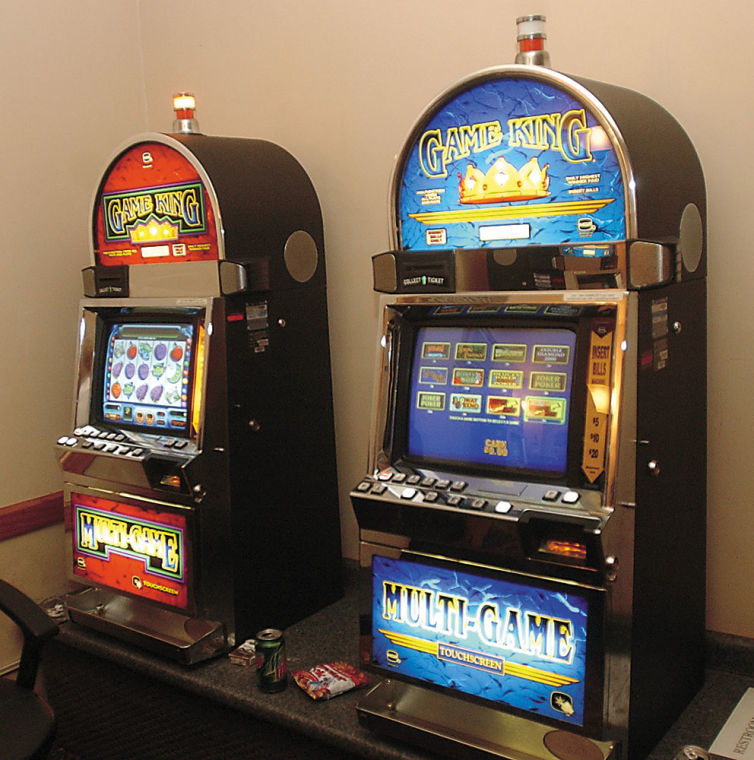CHARLESTON – More than 30 businesses with video lottery terminals have filed lawsuits against the West Virginia Lottery Commission and an international gaming company for a computer change they claim will make their terminals “worthless.”
The businesses, along with the West Virginia Amusement & Limited Video Lottery Association, filed the suits last week in Kanawha Circuit Court. In addition to the state Lottery, Lottery Director John Musgrave and gaming company IGT Inc. are named as defendants.
According to the complaint, these 32 businesses were award limited video lottery (LVL) terminals in 2011, which was the last 10-year renewal period.
“The plaintiffs range from very small LVL retail locations with as few as five permits to operators with more than 500,” the WVALVLA states. “They collectively paid the (West Virginia) Lottery millions of dollars for permits to operate terminals from 2011 to 2021 with the understanding they could use their existing terminals.”
But the plaintiffs contend the Lottery and IGT negotiated to require the plaintiffs to either buy new terminals or pay IGT for “a costly upgrade” by the end of 2017. They say before the bids were submitted in 2011, the state Lottery held two educational seminars with an IGT representative. There, potential bidders were told they could use terminals with either the ICIS or SAS protocol, or computer language.
According to the complaint, the Lottery and IGT had private discussions in the year following the bid in which IGT said it no longer would service or support ICIC protocol after 2015, which is when the current contract for the state Lottery’s central computer system was set to expire.
“IGT owns the rights to both the ICIS and SAS protocols, as well as being the manufacturer of most of the LVL terminals in the state,” the WVALVLA said in a press release. “At the time, 100 percent of all terminals were in the ICIS protocol, and bidders relied on the ability to continue to use their existing terminals or buy used terminals in that protocol.”
WVALVLA spokesman Michael Haid said his members feel swindled.
“These West Virginia businesses would not have bid for as many permits or paid nearly as much for a permit if they thought that existing terminals would be made obsolete before the end of the permit period,” he said. “Many of our members feel like they have been subject to a classic ‘bait-and-switch.’”
Haid said members of his group were not told of this plan by either the state Lottery or by IGT. Still, the plaintiffs say the state Lottery extended its contract for its current central computer system until 2017, and it negotiated a deal with IGT for the company to offer permit holders a conversion kit to allow ICIS terminals to function as SAS terminals.
“With encouragement and approval by the lottery, permit holders bought thousands of the conversion kits from IGT, paying between $1,000 and $3,000 apiece, often borrowing from IGT or banks to do so,” the plaintiffs say. “Despite having been approved by the Lottery last fall, most of the kits are deficient and cannot be installed.
“In addition, the Lottery has proceeded with plans to take bids for a new central computer system that will no longer accept terminals in the ICIS after 2017, more than three years before the current 10-year permit period ends in 2021. In addition to paying for conversion kits or new terminals, permit holders will have millions of dollars in other expenses related to the change in protocol because an expensive ‘site controller’ must also be installed at most of the retail locations.”
The WVALVLA says the state Lottery and IGT essentially are forcing small West Virginia businesses to pay millions unnecessarily to a huge international corporation. IGT recently was acquired by G-Tech, another gaming giant. Before the merger, IGT’s annual profit was tens of millions of dollars more than the combined revenue of West Virginia’s 1,500 LVL operators, the press release states.
“This is money that should stay in West Virginia and could be used by the restaurants, taverns and others in the video lottery business to employ and help other West Virginians,” Haid said.
The plaintiffs listed in the complaints are A-1 Amusement Inc. of Wood County, Action Gaming Inc. of Ohio County, Lottery Technologies LLC of Mineral County, Blue Diamond LLC of Berkeley County, CD 3 LLC of Ohio County, Clay Music Corporation of Kanawha County, Coach’s Club Association of Marshall County, Dustyn Enterprises of Cabell County, Elm Room Inc. of Hancock County, Fabulous 50’s Café LLC of Hancock County, Gridcoach LLC of Brooke County, Hot 5 Stop LLC of Berkeley County, J-Bird LLC of Berkeley County, J&J Amusment LLC of Berkeley County, Jerry’s Bar Association of Marshall County, LeeJay Inc. of Wood County, LL&M Inc. of Berkeley County, Mimi’s Inc. of Kanawha County, Mountaineer Music LLC of Kanawha County, Nitro Lodge #565 of Kanawha County, PDM Associates of Weirton LLC of Hancock County, Palatokas Associates LLC of Hancock County, Patty’s Inc. of Kanawha County, Progressive Video Lottery LTD of Monongalia County, Random World LTD of Mercer County, TA Vending LLC of Ohio County, The Lounge LLC of Berkeley County, Tiffany’s LLC of Ohio County, Trans-Allegheny Enterprises LLC of Wood County, Wheeling Coin LLC of Ohio County, Woldap LLC of Mason County and WV ‘Café” Holding Company LLC of Wood County.
They accuse the defendants of regulatory taking, violation of due process rights, tortious interference, fraudulent inducement/concealment, business and economic duress, unjust enrichment and civil conspiracy. They seek compensatory and punitive damages and to order the defendants to support the ICIS protocol through the entire 10-year period to 2021 and/or order defendants to cover costs to switch to the SAS protocol. They also seek court costs, attorney fees and other relief.
They are represented by William C. Brewer and J. Tyler Slavey of the Morgantown law firm of Brewer & Giggenbach PLLC.
Kanawha Circuit Court case numbers 15-C-914 to 15-C-946
Group of retailers accuse state Lottery of 'bait-and-switch'

ORGANIZATIONS IN THIS STORY